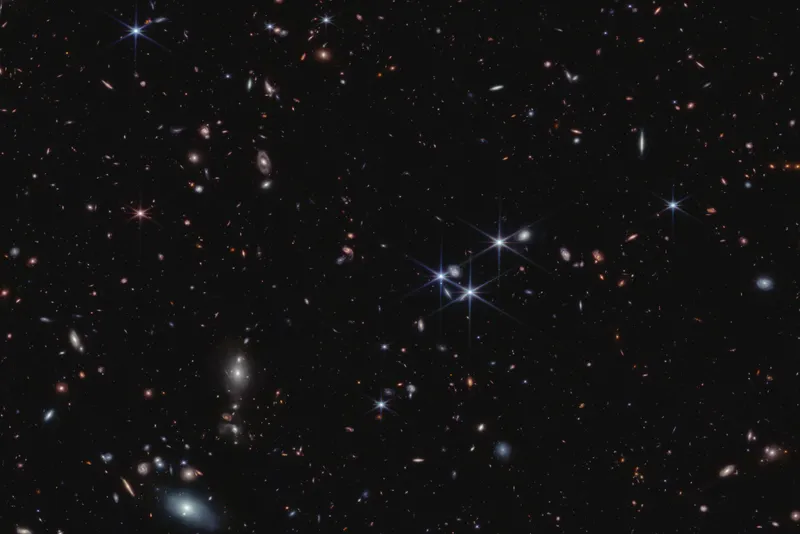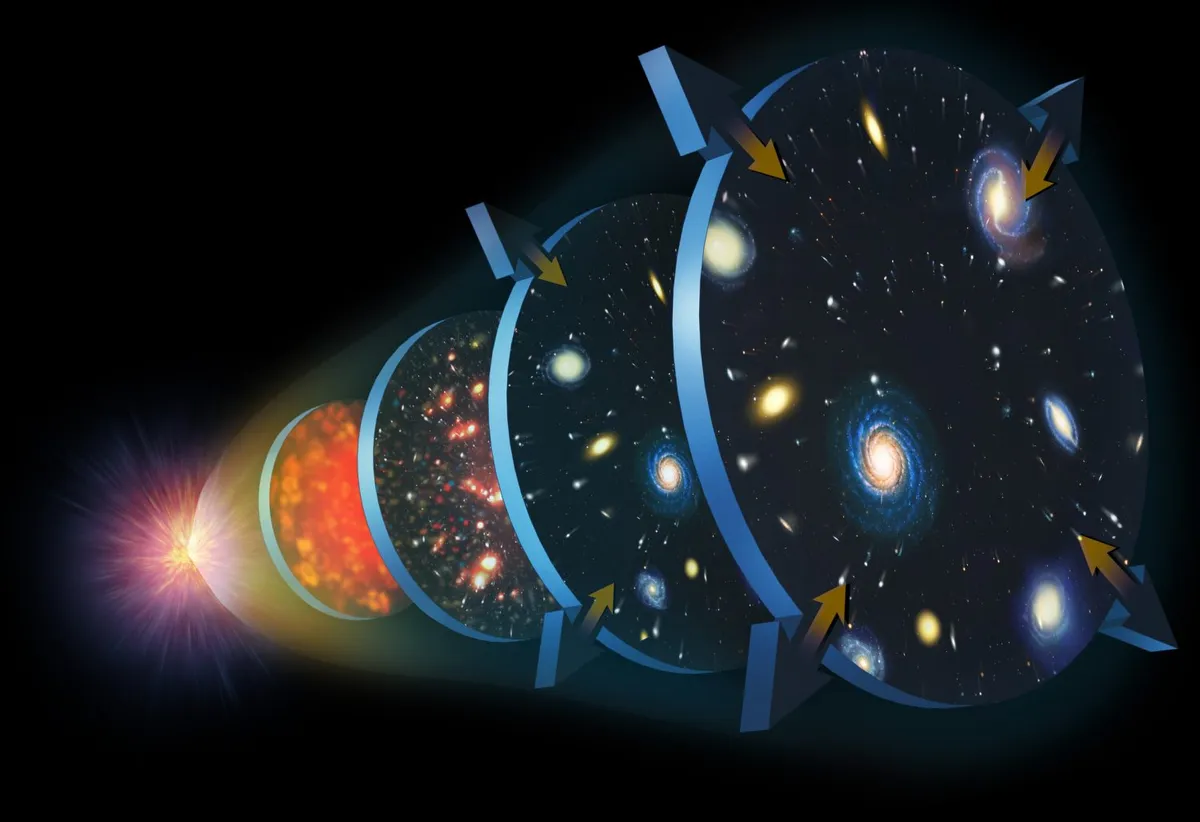In the past, galaxies were closer together, and therefore closer to Earth. When this was the case, their light did take less time to reach us.
Take, for instance, a galaxy we are observing today whose light has taken 100 million years to get here. When it was closer, its light took, say, only 99 million years to get here.
This light, which took a million years less to get here than the light arriving from the galaxy today, arrived on Earth in the past. It is not the light we are observing today.

More from Marcus Chown:
But this doesn’t explain why light from the most distant matter in the Universe – stuff beyond the edge of the observable Universe – has not arrived here yet when, once upon a time, all the matter in the Universe was the barest whisker apart.
How could it get so far apart that light from the most distant objects hasn’t reached us yet when, according to Einstein’s special theory of relativity, no object can travel faster than light?

The answer is that immediately after the Big Bang, the Universe did indeed expand faster than light.
Consequently, light travelling to Earth was like a 100m sprinter trying to reach a finishing tape that is being pulled farther and farther away.
But how can space expand faster than the speed of light? Surely this violates special relativity?
However, the expansion of the Universe involves acceleration, which is not covered by the theory of special relativity.
The theory that must be used instead is Einstein’s general theory of relativity and, according to this, expanding space is like a stretchy fabric which can expand at any rate it likes.
